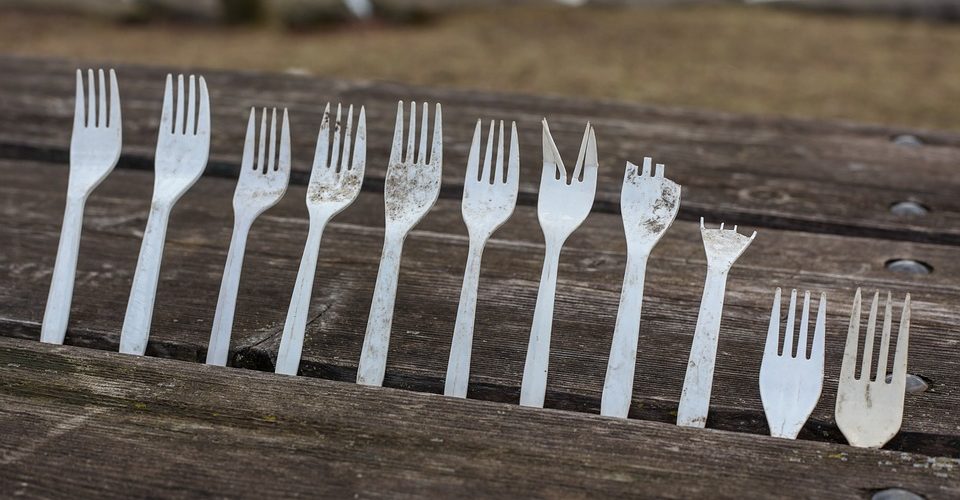Are forks illegal in Canada? Check out this shocking Answer
Are forks a crime in Canada? My friend asked this query last weekend and obviously, I was confused..
He’d probably read about the news and the reports floating around TikTok along with Twitter that cutlery was prohibited in Canada.
Based on these TikTok creators claimed that the inaccessibility of forks that you could buy online was an outcome due to “The Great Canadian Fork Fight.”
If this is the case or just a myth We’ll find out through this post.
Are forks illegal in Canada?

There are no hard feelings However, anyone could be confused about the efficacy of this policy. In any case, this article will explain what actually transpired.
In other words, if you were to inquire whether forks are illegal in Canada? I’ll be happy to answer both in the negative as well as positively.
Forks are not legal in Canada. However, forks can be used legally in Canada. There are solid arguments to these questions.
A brief history of Canadian Law Prohibiting Forks
There was an earlier time when there was a Canadian Law that was enacted in 1879, which stated that one could only consume food with specific tools or hands.
Anybody who is found to be violating the law could be penalized $200 in CAD. This law is in effect (with an added twist) up to the present, though it’s not enforced to the fullest extent.
In the above it’s clear that using utensils for eating within Canada is a tradition that has been in place for a long time However, the law banning using forks in the kitchen is new.
On the 1st of January, 1996 an amendment to the law entered into effect, prohibiting eating using hands that are not clean in Canada. This means that eating using your hands is now prohibited in Canada.
In the same year, it was made unlawful to make use of a fork to consume food in public areas apart from your home, or carry it on your person.
As time went by the law was relaxed and little attention was paid to it, until recently.
Do forks have legal status in Canada?
You’ll remember that my response to the question about whether the use of forks is legal in Canada was two ways.
In this section, we will look at how the possession or use of forks in Canada can be considered legal.
Utilizing or owning a fork within Canada can be legal. But, you should only make use of it in a private location. For instance, in your home but not in public spaces.
In Canada, the most popular kind of fork that is used in Canada is the carabiner fork. Forks like these can easily be transformed into weapons.
In this way, they could create serious injury. This, along with other issues is exactly what the Canadian Government is working to avoid.
Therefore, eating with forks in public places is illegal. However, the use of a fork for eating is best done in private Canada instead of in public.
I’m certain that this explanation is extremely easy and simple. The likelihood for it to result in harm is extremely low at home.
Are forks illegal or banned in Canada?
It is true that Canadians cannot be possessing, using or moving around using forks in public areas.
Although bizarre and quirky this rule might seem to be, remember that it was created in order to protect the public’s interest.
A fork is a simple tool that can be employed as a weapon and Canada has seen numerous instances of forks being employed to cause serious bodily injuries.
Forks are not permitted in public areas as they pose a threat to human security.
If you are planning to visit Canada in the near future Be sure to take your forks at home. You could be detained or penalized to carry a fork within Canada.
What year did Canada finally end the ban on using forks?
In 2015 the Canadian government prohibited the forks entirely in an effort to safeguard the environment and cut down on pollution.
Many Canadian claimed that forks are an essential tool and are thought to be essential to eat with them.
The decision was then highly controversial and led to a number of debates and arguments.
Despite all the debates and arguments regardless of the arguments and debate, the Canadian Government remains firm in its decision.
The decision-makers rebutted people’s arguments by stating that forks don’t have to be required since there are alternatives to eating food with forks and knives.
The reasons why forks are not legal in Canada
Discussing the peculiarities or laws unique to Canadian laws the law prohibiting making use of forks is just one of them.
As you can see, the prohibition is not only severe but also serious for anyone who uses it in public areas.
The main reasons behind this ban are described as follows:
- Forks (most particularly carabiner-style) are considered to be weapons in Canada and, as such, are illegal.
- Moving or carrying around with a fork inside Canada is considered to be unruly behaviour.
- Forks are deemed illegal in Canada as they can be used to intimidate or even stab somebody to death.
- If you’re found to be in the act of using the fork within Canada it could lead to you being accused of illegal possession of an instrument
- Trading forks (whether on or off) within Canada is also classified as illegal.
- Selling forks to Canada is an offence of trafficking in weapons.
- A fork could also be used to perpetrate theft, burglary, or robbery since it can be utilized as a substitute for a deadly weapon.
- There is a possibility of facing serious penalties if arrested for using a fork as a weapon in the course of committing a crime.
- Certain prisons and correctional facilities in Canada consider forks to be an item of contraband.
- If you’re found with a fork while in prison it is likely that you will be charged with additional offences.
In the light of the preceding, you can conclude that the decision taken by the Government regarding the ban is rightly taken.
Can you legally consume food with a fork in Canada?
This question was answered in the past. Yes, you are able to consume food with a fork in Canada but only inside your home.
Conclusion
In the following analysis, you’ll see that the question of whether forks are considered illegal in Canada is not a question that can be answered by itself.
It’s not legal to possess or make use of it in public spaces, however, there’s no law that prevents its use in the home.





